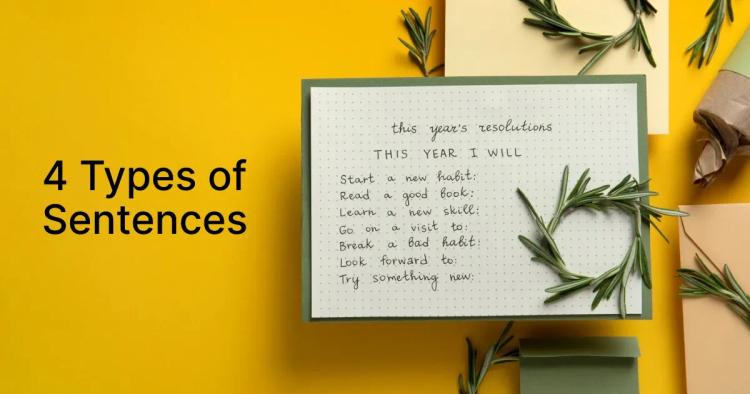In the enchanting realm of language, the art of crafting sentences lies at the heart of communication. Sentences are like intricate puzzles, and each piece plays a unique role in conveying meaning.
One such crucial piece is the subject, an enchanting element that brings life to sentences and sparks the fires of expression.
In this comprehensive guide, we shall embark on a journey to unravel the mysteries of the subject of a sentence, exploring its various forms, functions, and the significance of subject-verb agreement.

What are the basic parts of a sentence?
Before we delve into the essence of the subject, let us take a moment to understand the foundational elements of a sentence. A sentence, in its simplest form, comprises three basic components: the subject, the verb, and the object.
The subject is the protagonist of the sentence, while the verb breathes life into it, guiding the action or state of being. The object, on the other hand, is the receiver of the action. Together, these elements form a harmonious dance, creating a symphony of meaning.
Let us illustrate this with an example:
- Subject: The curious cat
- Verb: jumped
- Object: over the lazy dog.
In this delightful sentence, the subject (the curious cat) is the star that performs the action (jumped) over the object (the lazy dog).
What is the subject of a sentence?

Ah, the subject! It is the focal point of a sentence, the beacon that illuminates its meaning. The subject represents the person, place, thing, or idea that performs the action or is being described in the sentence.
A subject can stand alone or be accompanied by various modifiers that enrich its essence. To identify the subject, one must ask, "Who or what is the sentence about?" The answer shall lead to the heart of the matter.
Let us consider a few examples to strengthen our understanding:
- The sun shines brightly. Subject: The sun
- Emily reads fascinating books. Subject: Emily
- Amidst the lush greenery, stood an ancient castle. Subject: an ancient castle
What are the different types of subjects?
As in the vast tapestry of language, the subject too reveals its versatility in three distinct forms: the simple subject, the complete subject, and the compound subject.
Simple Subject
The simple subject is the very essence of the subject, the core word that forms the foundation of a sentence. It is stripped of all its modifiers and stands bare yet bold, unafraid to be seen in its purest form. Let us explore some examples:
- Dogs bark at night. Simple Subject: Dogs
- The radiant moon graced the night sky. Simple Subject: moon
Complete Subject
The complete subject, unlike its simple counterpart, includes all the words that modify or describe the core subject. It presents a fuller picture, capturing the subject's essence with all its embellishments. Let's see how it unfolds in the following examples:
- The old, wise owl hooted from the ancient tree. Complete Subject: The old, wise owl
- Delicious homemade apple pie warmed our hearts on a chilly evening. Complete Subject: Delicious homemade apple pie
Compound Subject
Ah, the joy of togetherness! The compound subject unites multiple subjects, binding their destinies and sharing the spotlight. It ignites sentences with a sense of harmony and cooperation. Here are some examples:
- Jenny and Tom play soccer in the park. Compound Subject: Jenny and Tom
- Laughter and merriment filled the air. Compound Subject: Laughter and merriment
How are subjects used in a sentence?
Subjects are the beating heart of sentences, breathing life into mere words and transforming them into expressions of thought and action. They dictate the tone, the mood, and the entire essence of communication. Subjects can be used in various ways to convey different meanings and emotions.

Subjects as the Performers of Actions
Subjects take centre stage as the protagonists of a sentence, the ones who perform actions that define the sentence's core message. Observe the following examples:
-
The diligent student aced the exam. Subject: The diligent student Action: aced
-
The gentle breeze caressed the blooming flowers. Subject: The gentle breeze Action: caressed
Subjects as the Revealers of States of Being
Sometimes, subjects simply are, existing in a state of being without performing any explicit action. They shine the light on the subject's condition or existence. Examples include:
- Happiness is contagious. Subject: Happiness State of Being: is contagious
- The mountains stand tall and proud. Subject: The mountains State of Being: stand tall and proud
Subjects in Questions
Inquisitive minds often use subjects in questions to seek answers and quench their thirst for knowledge. Questions can revolve around various types of subjects, and here are some examples:
- Who sang that beautiful melody? Subject: Who
- What caused the sudden power outage? Subject: What
Subjects in Commands and Imperatives
Subjects can assert authority, issuing commands and imperatives, guiding actions with firmness. Let's see how this works:
- Stop making excuses! Subject: You (implied)
- Look both ways before crossing the road. Subject: You (implied)
Subjects in Exclamatory Sentences
Ah, the joy of exclamation! Subjects can be the driving force behind exclamatory sentences, expressing strong emotions and wonder. Behold the power of the following examples:
- How magnificent the fireworks were! Subject: How magnificent
- What a beautiful sunrise! Subject: What a beautiful sunrise
Copychecker's Grammar Checker Tool: Empowering Perfect Sentences
In this modern age of technology, we are fortunate to have powerful tools at our disposal to enhance our writing.
One such tool that has become indispensable for writers, students, professionals, and anyone who values polished communication is Copychecker's Grammar Checker.

How Copychecker's Grammar Checker Works
At its core, Copychecker's Grammar Checker uses artificial intelligence and natural language processing to analyse sentences and identify grammatical errors. The tool meticulously scans each word, considering its context and relationship with other words in the sentence.
When you paste your text into the Grammar Checker, it quickly and accurately highlights potential mistakes, such as subject-verb agreement errors, misplaced modifiers, faulty parallelism, and more.
The real-time feedback not only corrects errors but also explains the reasoning behind each correction, helping you learn and grow as a writer.
Empowering Perfect Sentences
Correcting Subject-Verb Agreement Errors
Subject-verb agreement is a fundamental aspect of grammatically sound sentences. However, it can be a tricky area, especially when dealing with compound subjects, indefinite pronouns, or collective nouns.
Copychecker's Grammar Checker shines in this realm, effortlessly identifying and correcting errors, making your writing more polished and professional.
Example:
- Original: The crowd were cheering loudly.
- Correction: The crowd was cheering loudly.
Mastering Sentence Structure
Effective sentence structure is the backbone of coherent writing. Whether it's avoiding run-on sentences or fragmentary structures, Copychecker's Grammar Checker acts as your vigilant guide, nudging you toward concise, well-structured sentences that keep readers engaged.
Example:
- Original: After the long and exhausting day at work, I went home and ate dinner I watched a movie and then slept.
- Correction: After the long and exhausting day at work, I went home, ate dinner, watched a movie, and then slept.
Enhancing Word Choice and Style
While grammar is crucial, writing also involves the art of expression. Copychecker's Grammar Checker not only points out potential grammatical errors but also suggests alternative word choices to enhance the flow and style of your writing.
It provides synonym suggestions, ensuring your sentences are both eloquent and impactful.
Example:
- Original: The weather was very bad.
- Correction: The weather was extremely inclement.
Contextual Analysis for Nuanced Correction
Language is complex, and the same word can have different meanings depending on its context. Copychecker's Grammar Checker excels at understanding the subtle nuances of language and offers context-specific corrections, ensuring your sentences convey precisely what you intend.
Example:
- Original: I feel like a million dollars.
- Correction: I feel like a million dollars. (No correction needed as it's an idiomatic expression)
The importance of subject-verb agreement

In the grand dance of language, harmony is key. The beauty of sentences lies not only in their poetic form but also in the rhythm of subject-verb agreement.
When crafting sentences, it is essential to ensure that the subject and the verb are in sync, complementing each other like two souls entwined.
Subject-verb agreement means that a singular subject must be paired with a singular verb, and a plural subject must be coupled with a plural verb. Failure to maintain this balance disrupts the linguistic symphony and can lead to confusion and misunderstandings.
Let's delve into some examples to understand this better:
- The dog chases its tail. (Correct)
- The dog chase its tail. (Incorrect)
- She sings beautifully. (Correct)
- She sing beautifully. (Incorrect)
Subject examples
To solidify our understanding, let's explore more examples of subjects in various sentence structures and contexts:
Singular Subjects
- The river flows gently.
- The elephant is enormous.
- Honesty is the best policy.
Plural Subjects
- The birds chirp cheerfully.
- The children play in the park.
- Dreams and aspirations fuel our ambition.
Compound Subjects
- Apples and oranges are my favorite fruits.
- The lion and the tiger roamed freely in the wild.
- Laughter and joy filled the room.
FAQs
What is the subject of a sentence?
The subject of a sentence is the main entity that performs the action or is being described in the sentence. It represents the "who" or "what" the sentence is about.
How to find the subject of a sentence?
To find the subject of a sentence, ask yourself, "Who or what is the sentence about?" The answer will lead you to the subject. Look for the main noun or pronoun that is performing the action or being described.
Which can be used as the subject of a sentence?
The subject of a sentence can be a person, place, thing, or an idea. It can be a single word or a group of words working together as one unit.
What are the different kinds of subjects?
There are three different kinds of subjects:
- Simple subject: The core word or noun that forms the foundation of the sentence.
- Complete subject: The core subject along with all the words that modify or describe it.
- Compound subject: Two or more subjects joined together to form a collective entity.
Conclusion
As we draw the curtains on this captivating journey through the heart of sentences, we emerge with a deeper understanding of the subject and its enchanting role in the art of communication.
In the tapestry of language, every thread has its place, and the subject weaves the foundation upon which our words dance. Its harmony with the verb is the melody that resonates in our hearts and minds, making the symphony of sentences a timeless masterpiece.
Copychecker's Grammar Checker is more than just a tool; it's an empowering companion for writers, students, and professionals alike.
With its intelligent algorithms and context-sensitive corrections, it elevates your writing to new heights, helping you express your ideas with clarity, precision, and impact.




